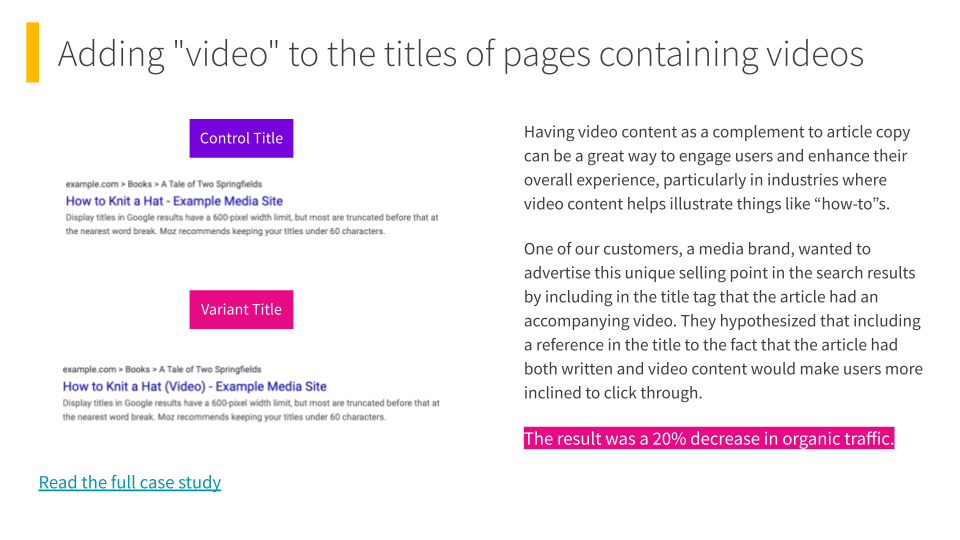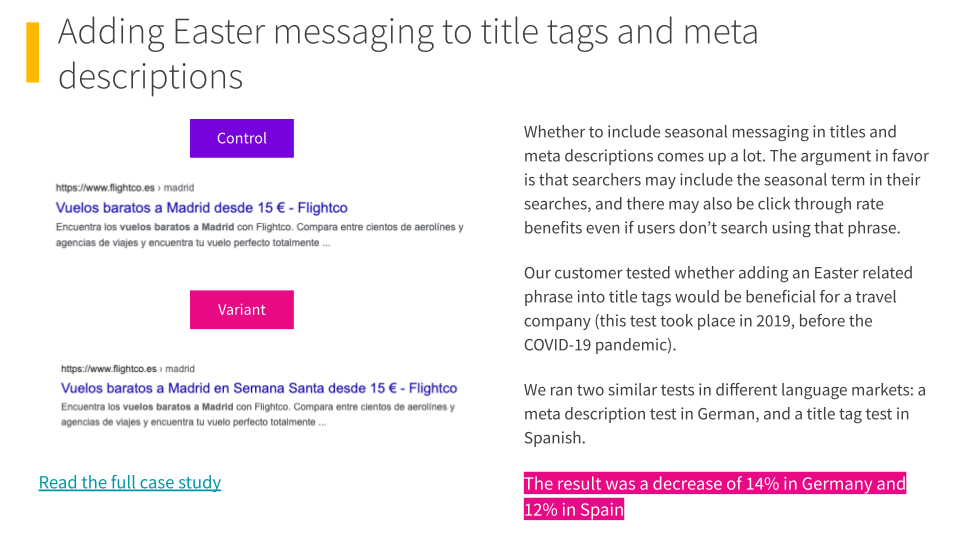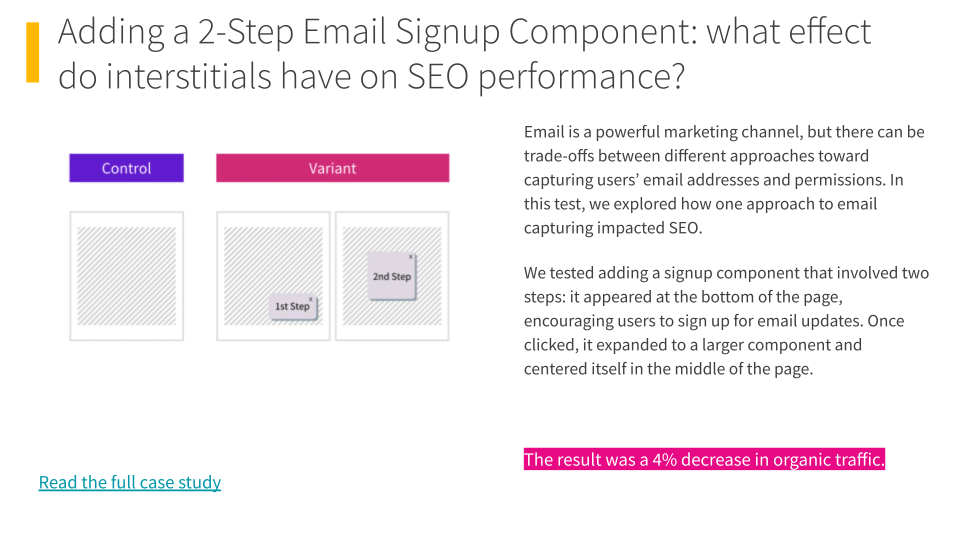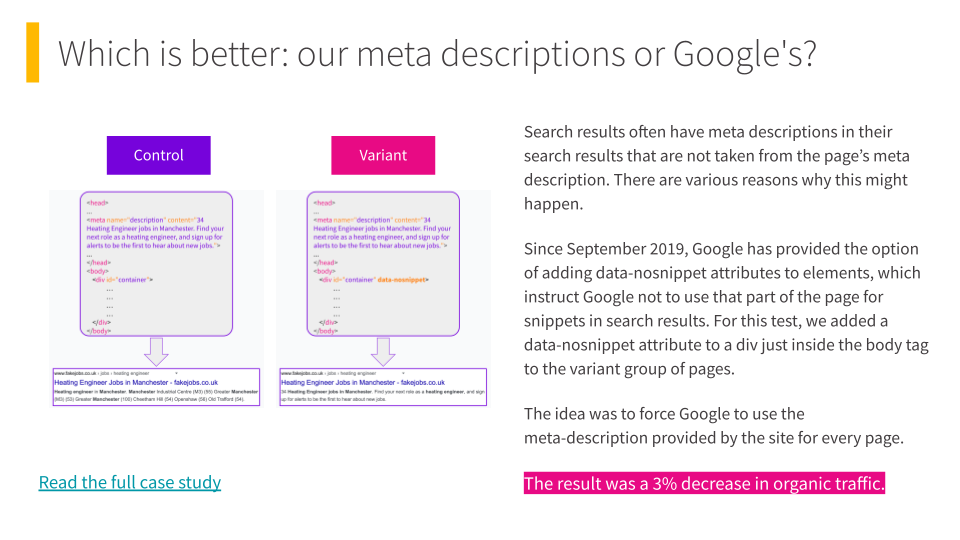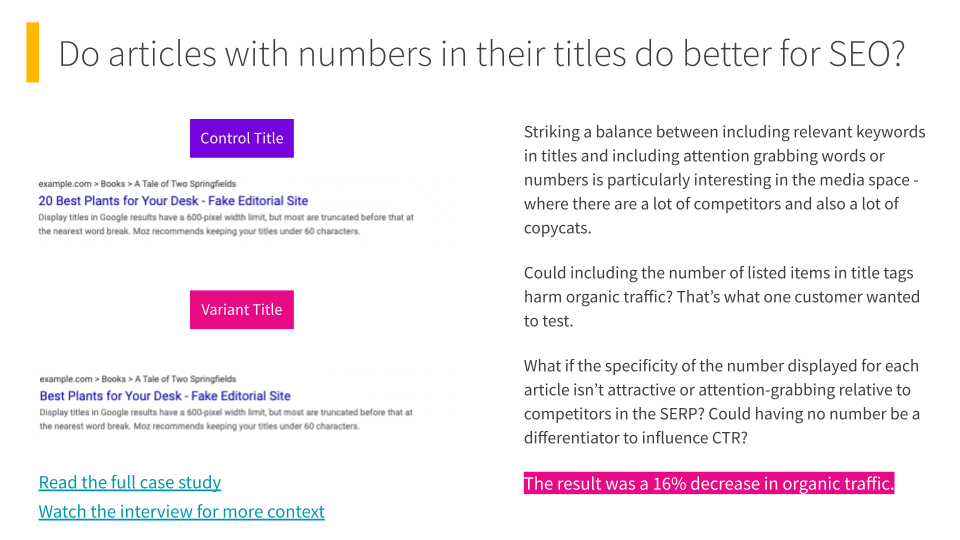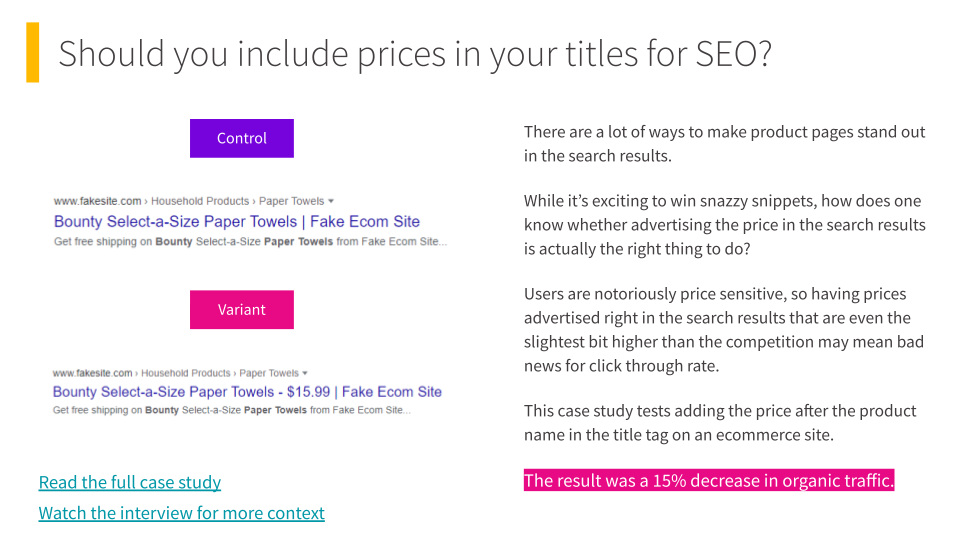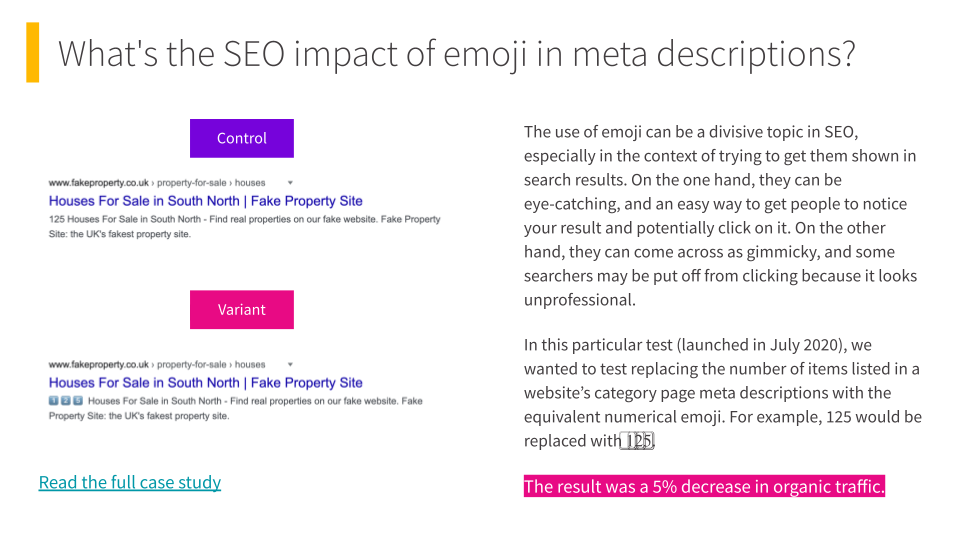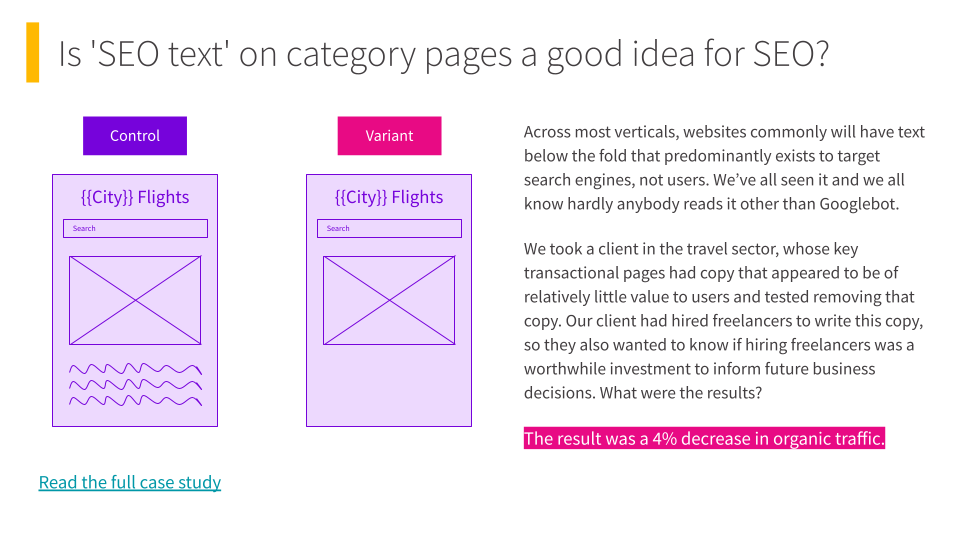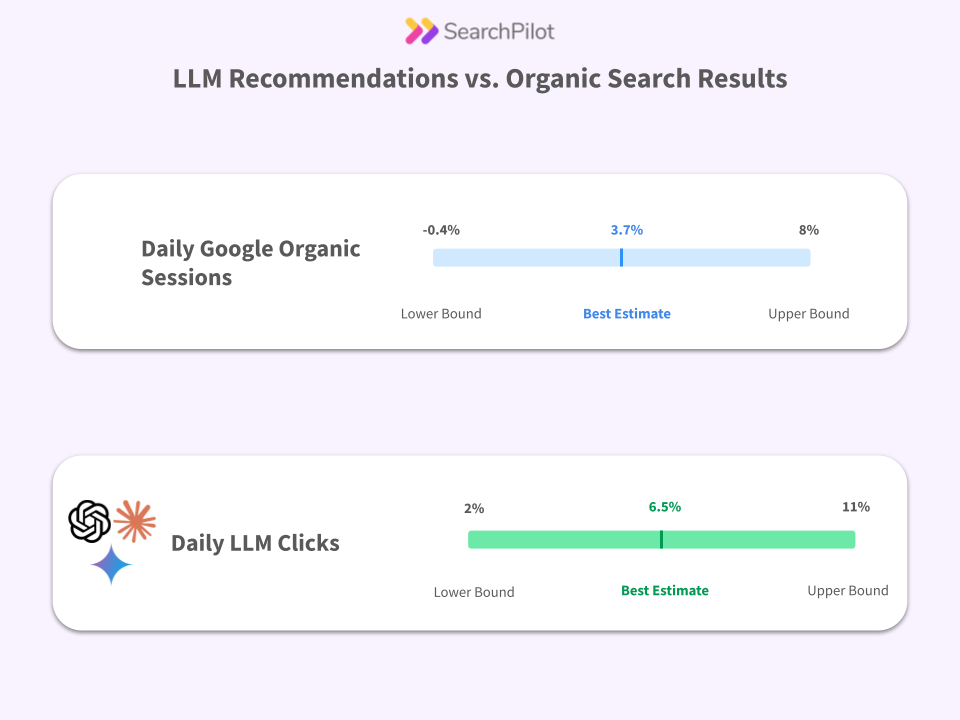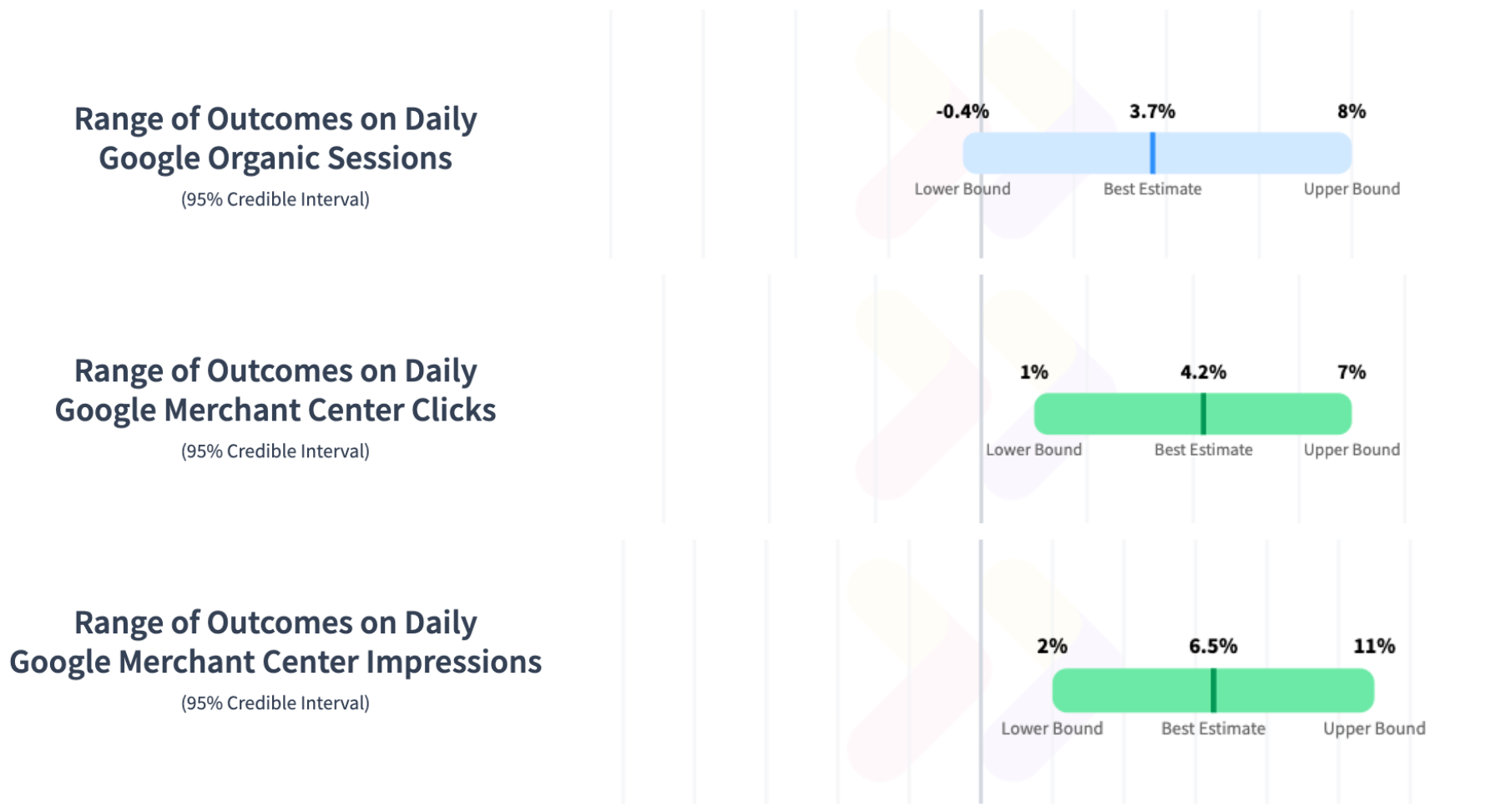This is a follow-up post to my recent 7 winning SEO tests. If you’re a glass-half-full optimist, you might prefer to start there.
Losing tests are just as important, though, if not more so, because they represent the opportunity to avoid undoing months if not years of hard work across many teams. A crucial part of the return on investment of a testing program is the ability to try more things, and to try bolder things, safe in the knowledge that you won’t roll out losers. Will has written previously about how what he called marginal losses - the changes that individually have small negative impacts but cumulatively add up - are the reasons many SEO programs are underperforming if they’re not testing.
Just like with winning tests, we are often asked about examples of the kinds of changes that can negatively impact organic search performance. It comes up so often that I put together a resource listing a range of losing tests. Some will surprise you, some you might think you’d never have been bold enough to try, but hopefully all of them will make you think. In particular, while some need sensitive controlled A/B testing to detect, some of the impacts are so large, you might never want to touch a title tag without testing again!
You can check out the full presentation here or keep reading:
1. Losing SEO test: adding “video” to the titles of pages containing videos
A media brand customer tested standing out in the search results by emphasising their video content.
The result was 20% decrease in organic traffic.
2. Losing SEO test: adding seasonal messaging to title tags and meta descriptions
A travel industry customer tested adding timely phrases into titles and meta descriptions around Easter holidays in multiple European countries (pre-COVID).
The result was a 14% decrease in organic traffic in Germany and 12% in Spain.
3. Losing SEO test: adding an interstitial email sign-up form
A customer tested adding an email sign-up component that involved two steps. It appeared at the bottom of the page, encouraging users to sign up for email updates. When clicked, it expanded to a larger component and centered itself in the middle of the page.
The result was a 4% decrease in organic traffic.
4. Losing SEO test: forcing Google to use the site’s meta descriptions in search results
A customer tested using data-nosnippet on the whole body of the page to prevent Google using any body copy for the snippet in the search results, and instead force it to use the meta description on the page.
The result was a 3% decrease in organic traffic.
5. Losing SEO test: removing numbers from title tags
A media industry customer noticed that every result in key search results looked similar with numbered lists dominating. They tested removing numbers from their article titles in order to try standing out.
The result was a 16% decrease in organic traffic.
6. Losing SEO test: adding prices to title tags
An ecommerce customer tested adding the product price right after the product name in the title tag on product pages.
The result was a 15% decrease in organic traffic.
7. Losing SEO test: adding emoji to meta descriptions
A customer tested adding emoji to their meta descriptions.
The result was a 5% decrease in organic traffic 📉.
8. Losing SEO test: removing “SEO text” from category pages
A customer tested removing seemingly relatively low-quality boilerplate “SEO text” from their category pages. It seemed as though the copy was serving little user-centric purpose.
The result was a 4% decrease in organic traffic.
If you want more…
Sign up to our case study email list:
If you’d like to see the platform in action
If you’d like to be able to run your own tests, you can get a demo of SearchPilot by filling out the form at the bottom of the page.

